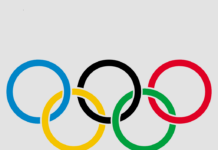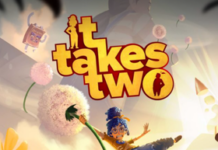Partly due to travel over the past month and partly for personal reasons, I’ve avoided writing about Gamergate before now. Well, that’s not quite true, I wrote 3 different posts but I didn’t end up posting them out of fear, and not just fear from the mob.
Some great, balanced pieces have been written (and some funny ones), but there has also been a lot of fear, outrage, and confusion, that—while understandable—has shut down conversations that need to happen.
I ‘ve been ranting about social justice in games for years now—since before I even really had the vocabulary to talk about it. And particularly in the last couple of years, I’ve made some really incredible allies, grown considerably, and learned a lot about how my beliefs fit into the greater social justice movement. But I’ve had some concerns lately with the way social justice folks are conducting ourselves in light of Gamergate.
I recently had a conversation with friends that revealed they were afraid to speak out against things prominent games critics were saying for fear that speaking out would brand them as being “against” the social justice movement, and I’ve shared some of their concerns myself. I genuinely wonder sometimes, if I express criticism in this field, will it mean that I “make enemies” or am “blacklisted” from future endeavors? Will speaking out against prominent gender critics be mistaken for being “against gender equality” as a whole? These are real concerns, and dismissing them as the ammunition of pouting “manchildren” (a dismissive, gender-specific term for men who express deep emotion) is doing the field a disservice.
When war lines are drawn, it’s sometimes easy to slip into the mentality that “if you’re not with us, you’re against us.” But truthfully, even though I’m for the social justice movement, I’m against some of the things I saw coming from our side during the explosion. Granted, I haven’t seen social justice folks doxxing or using death and rape threats*, but we could be better and some of our behaviors needed to be called out. But I was afraid. Criticizing your allies in any capacity—trying to be the voice of reason—doesn’t make friends during wartimes, which is why I’ve been so opposed to the “us vs. them” rhetoric I’ve seen around the internet. We’re not in a war with “gamers,” and to claim so is drawing false binaries.
In a lot of ways, attacking ‘gaters on the Web feels like punching down, attacking lonely children (and many are literally children) with the benefit of age, education, and platform on my side. We generally don’t acknowledge enough that the power afforded by having a platform is a huge privilege that is too easy to discredit. Privilege is intersectional, and having an audience is a privilege, even if you are otherwise disadvantaged.
It’s easy to look at people with check-marks and so many followers that Twitter only counts by the thousand now, and think that a couple thousand followers means you’re still an underdog, but that’s a mistake. Most of the social justice folks I follow have a larger platform than most people on Twitter. My non-industry friends look at what I consider a meager 2500 followers with envy. So do a lot of gamers. This is a privilege that must be recognized. We have more power than we think we do.
This is not to say that ‘gaters should not be held responsible for their actions. I love that courts are getting involved. Harassment is never okay. Never. No matter what. And people need to be accountable for their actions. But virgin shaming, fat shaming, using dismissive gendered language (neckbeards, manbabies, dudebros, etc), or mocking individual mob members is not okay. The vitriol I saw directed at Destiny before the game was even out—probably as a symbol of the AAA industry and thus (somehow) ‘gaters—literally saying it was “not a real game,” showed me what an easy slip it is before we become the thing we decry.
In truth, we’re too quick to label people with very harsh labels that stick forever. If someone makes a questionable comment on gender, we call them a “sexist.” Likewise with racism, ablism, homophobia, transphobia, and so on. But people need room to learn, to grow. It’s very easy to brand people as wholly “good” or “bad,” but there is a huge difference between bad people and bad actions. A bad action can be corrected, talked about, learned from. A bad person is beyond redemption, written off, dismissed, exiled, blocked.
We should never be cultivating an environment in which people can’t speak their legitimate concerns in a respectful way. Social justice is about visibility; it’s about being heard. If people who believe in real critical discourse can’t express that discourse, we have a real problem that goes much deeper than Gamergate. We are purporting to break the echo chamber of the hyper-masculine gaming mainstream, but let’s not do that by creating our own separate echo chamber. Dissenting opinions should be encouraged, not silenced.
Diversity is good, let’s embrace it.
——–
Now let’s get to the real problem: Gamergate aside, there is a problem of cliquishness in the games industry. It’s not a worse problem than it is in other fields, but it is there. To deny this is silly, and to pretend we’re all working in a perfect meritocracy is disingenuous. But of course, to suggest it’s all a big conspiracy is equally ridiculous. Games are a small field, and most big players in the field have met at various events—or at the very least corresponded on social media, but it’s difficult from the outside to tell how deep those connections go.
Many games critics follow each other and correspond on social media, which is to say they have very public conversations. They post pictures from their cool parties. Some of their conversations get downright gushy, which is great (and probably necessary) for the industry to function and for many of us to not get incredibly disheartened. Everyone needs support, and especially in the wake of angry fans, we need each other.
But also look at it from the outside: if you don’t know how connected people are, besides what you see on social media—where admittedly everyone is trying to emphasize and play up how well they all know each other—it’s not inconceivable to presume everyone knows everyone and the ties are influencing the writing, however subtly. Double that feeling if you don’t actually understand the difference between the writing and standards of news media and those of reviews and critiques. We’re an industry who doesn’t know what we want our “journalists” to be, how can our readers expect to understand those difficulties from the outside?
This does not excuse harassment. Ever.
It does not excuse misogyny or hate. But to dismiss “gamers” as an invalid personal identity because the most vocal ones are uninformed and hateful is spotlight fallacy, and it’s not okay. I identify as a gamer without being a “manchild” or a harasser. I can be for social justice and consider games to be a crucial part of my identity. It’s not a binary, and I belong here.
For most of the time I was gone, the most vocal members on both sides seemed to be arguing from opposite extremes, which is getting nowhere and making everyone look bad. Part of my motivation to write this piece is to try to put into words why I feel so frustrated and silenced, especially when I’m so for equality in games. I’m disappointed with 4chan for a harassment campaign of such incredible scale, but I’m disappointed with social justice because I expected more from us than name-calling, mocking, and immaturity.
So I hope this post will be taken as it’s intended, as the start of a conversation. I want people to know it’s okay to talk, to be critical, as long as they’re respectful. I want us to be better.
And I really do believe we’re getting there.
[Edit: *since the publication of this post, several people have sent me links with allegations of social justice folks doing these things. I was unaware of these links at the time of publication and remain skeptical.]


